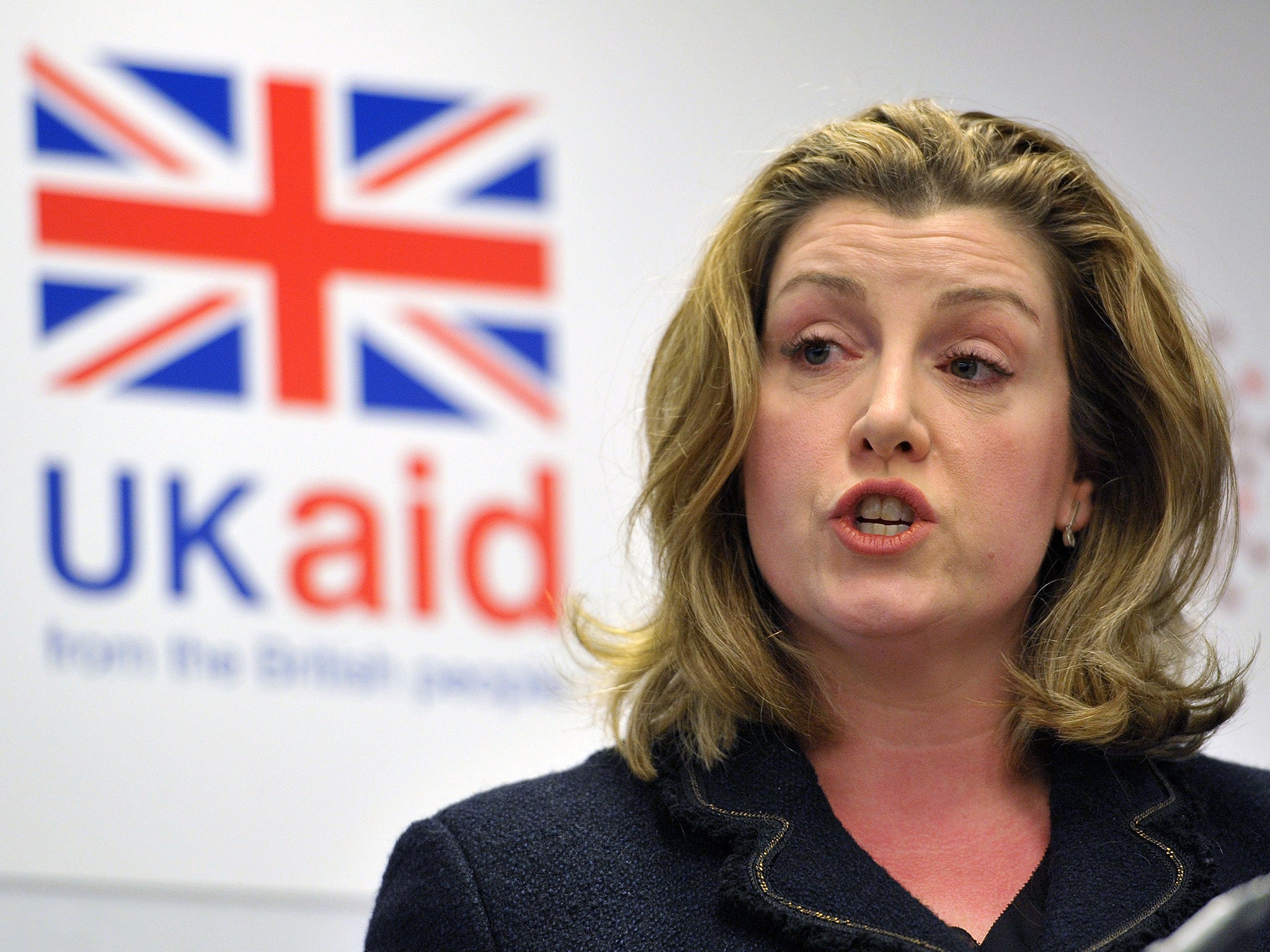Penny Mordaunt under fire for pledging to spend UK foreign aid in 'national interest' not just to help world's poorest
The £13bn aid budget should be allocated to issues 'the British public care about passionately, International Development Secretary argues

Your support helps us to tell the story
From reproductive rights to climate change to Big Tech, The Independent is on the ground when the story is developing. Whether it's investigating the financials of Elon Musk's pro-Trump PAC or producing our latest documentary, 'The A Word', which shines a light on the American women fighting for reproductive rights, we know how important it is to parse out the facts from the messaging.
At such a critical moment in US history, we need reporters on the ground. Your donation allows us to keep sending journalists to speak to both sides of the story.
The Independent is trusted by Americans across the entire political spectrum. And unlike many other quality news outlets, we choose not to lock Americans out of our reporting and analysis with paywalls. We believe quality journalism should be available to everyone, paid for by those who can afford it.
Your support makes all the difference.A vow to spend Britain’s foreign aid in “the national interest”, rather than simply to help the world’s poorest people, has triggered criticism of the International Development Secretary.
Penny Mordaunt came under fire after pledging to allocate her £13bn overseas aid budget on “tackling the issues that matter most to the British people”.
Such projects could include preventing plastics polluting the oceans and the illegal wildlife trade – which “the British public care about passionately”, she said.
Labour warned immediately that the strategy risked weakening support for aid spending, if the public no longer believed it was helping “to make the world fairer”.
And the Liberal Democrats accused Ms Mordant of following in the footsteps of her ousted predecessor, Priti Patel, by “pursuing pathetic headlines in the right-wing press”.
Doubts were also raised about the legality, under international rules, of diverting aid cash to pursue the donor’s interests – rather than those of the recipient countries.
Kate Osamor, Labour’s Shadow International Development Secretary, said: “When the British public get behind aid, they do so because it's the right thing to do - not because it's expedient.
“Frankly, the Tories' idea that we should stop using aid to reduce poverty and use it only for short-sighted national interest is an insult to the generosity and intelligence of the millions of British people who donate their time and money each year to make the world fairer.”
Baroness Shas Sheehan, for the Lib Dems, said: “It’s disappointing to see Penny Mordaunt following in Priti Patel’s footsteps by making unnecessary and, frankly, inaccurate claims about our foreign aid budget.
“Our Department for International Development has a proud history of delivering life-changing programmes to the poorest people in the world. The Secretary of State should be defending that record.”
Ms Mordaunt, in an article for The Daily Telegraph, said the UK would stop paying for aid projects that developing countries could fund themselves, by “putting their hands in their pockets” – even if they were “achieving good things”.
The minister said a growing number of investments by other government departments would “count towards our 0.7 per cent of GDP aid spending target”.
And – like Ms Patel, who was forced to resign in October - she argued her department should pursue “a bold new Brexit-ready proposition to boost trade and investment with developing countries”.
Most controversially, explaining her plan for aid spending in “the national interest”, Ms Mordaunt pointed to its work to develop new diagnostic tests used by the NHS.
“I will ensure that our aid spend directly contributes to tackling the issues that matter most to the British people,” she wrote.
“You will soon see the fruits of work between DFID [the Department for International Development] and Defra [the Department for the Environment, Food and Rural Affairs] to tackle plastics polluting the oceans and to prevent the illegal wildlife trade, both issues the British public care about passionately.”
She added, speaking to the BBC: “For me, the bar we need to set on aid spending is not just “are we spending this money well” but “could we spend it better in the national interest” - and I think we do need to address that issue head on.”
In the coming weeks, Ms Mordaunt is expected to flesh out her plans for aid, arguing it is necessary for Britain's security and prosperity- but targeting agencies that “fail to deliver on the targets we set them”.
Join our commenting forum
Join thought-provoking conversations, follow other Independent readers and see their replies
Comments